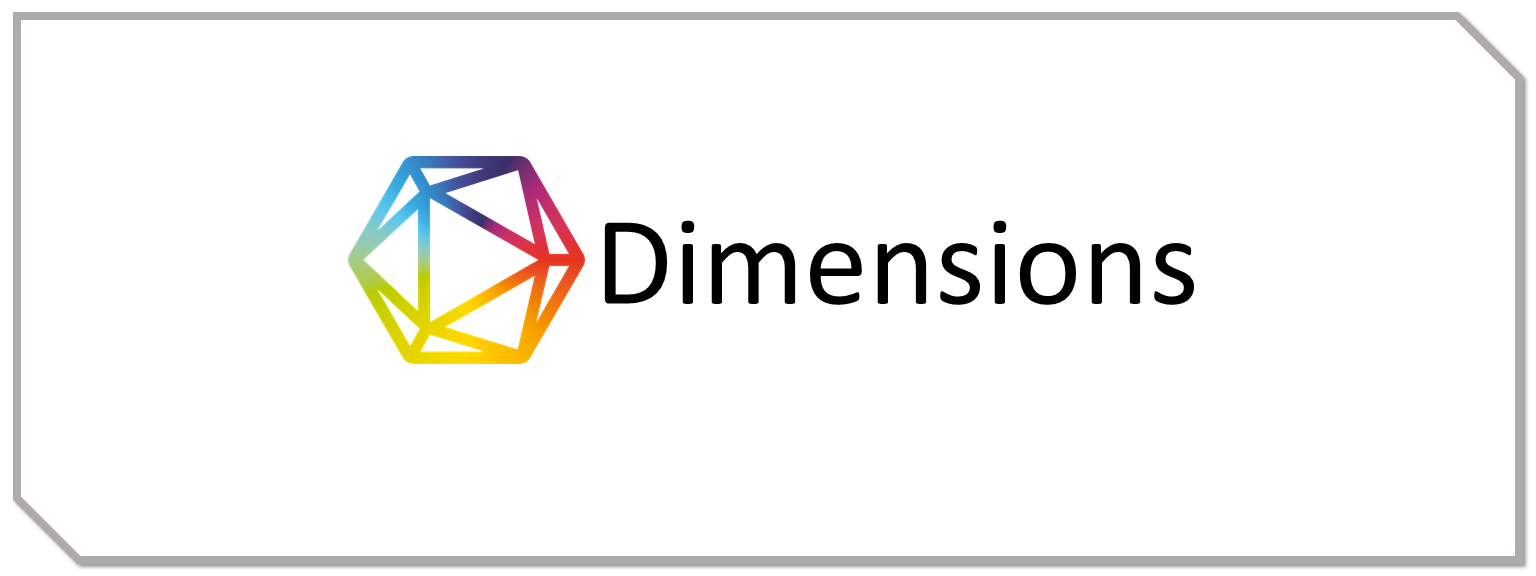Strategi Collaborative Governance dalam Peningkatan Pendapatan Asli Daerah (Studi pada BPKPD Kota Banjar)
DOI:
https://doi.org/10.59581/jmki-widyakarya.v1i3.734Keywords:
strategy, collaborative governance, local revenueAbstract
This research is motivated by the still not maximal local revenue in the city of Banjar. This is indicated by the low quality of human resources, lack of socialization, low innovation, weak level of supervision and low stakeholder support from various parties in collaborating. Research is focused on studies using the theoretical approach of Emerson, Nabatchi & Balogh (2011), namely the Collaborative Governance Regime (CGR) model through 1). System context dimension 2). Drivers dimensions include (leadership, incentive consequences and interdependence), and 3). The dynamics of collaboration (Principled Engagement, shared motivation, and capacity for joint action). With the aim of the research to examine and analyze the implementation and the constraints that have caused it to be ineffective, as well as an effective strategy for implementing collaborative governance in increasing Regional Original Income in the City of Banjar.
The research method uses descriptive analysis with a qualitative research approach. Data collection techniques through interviews, literature studies and observation.
The research results show: 1). The implementation of collaborative governance in increasing Local Own Revenue in the City of Banjar on the dynamics dimension of collaboration can be said to have not run optimally, more concrete efforts are still needed related to motivation, awareness, work systems and technical policy support while on the system context and drivers dimensions concerning the availability of resources resources, and budget constraints as well as the level of supervision has been carried out optimally. 2). Obstacle factors in the implementation of collaborative governance in increasing Local Revenue in the City of Banjar, namely the low level of communication and coordination; lack of human resources and budget, lack of technical regulatory support regarding the involvement of stakeholders (private parties and community leaders); as well as the low support and commitment of policy makers from members of the legislature, regional tax-producing apparatus organizations, and stakeholders (private parties and community leaders). 3). Collaborative governance strategies in increasing effective Regional Original Revenue (PAD) in Banjar City are aggressive growth strategies by maintaining the previous strategy and optimizing the strengthening of the second availability of human resources, budget and infrastructure; maximizing the clarity of Standard Operating Procedures (SOP), regarding tax collection, support from the private sector and other OPDs, as well as optimizing the involvement of cross-sectoral collaboration (government, private parties and community leaders) through Collaborative Governance in the City of Banjar.
References
Agranoff, Robert & Michael McGuire. 2017. Collaborative Public Management : New Strategies for Local Governments, Washington. D.C: Georgetown University Press
Ansell, Chris & Gash, Alison. (2008). Collaborative Governance in Theory. Journal of Public Administration Research and Theory. 18. 10.1093/jopart/mum032.
Arthur A. Thompson, Jr., A.J. Strickland III. 2013. Strategic management: concepts and cases. Boston, Mass McGraw-Hill/Irvin.
Balogh, S, dkk. 2016. An Integrative Framework for Collaborative Governance, Journal of. Public Administration Research and Theory.
Bella Sepri Nika Sari, Prof. Dr. Haula Rosdiana, M.Si (2019). “Evaluation of the Implementation of Collaborative Governance in the Optimization of DKI Jakarta Regional Tax Revenues”. Universitas Indonesia.
https://doi.org/10.2991/assehr.k.210531.037
Bila, A., & Saputra, B. (2019). Collaborative Governance Strategy In Government Sector. Jurnal Transformasi Administrasi, 9(2), 196-210. Retrieved from http://jta.lan.go.id/index.php/jta/article/view/114
Bryson, J.M. 2015. Perencanaan Strategis bagi Organisasi Sosial. Yogyakarta Pustaka Pelajar.
Cruden dan Sherman. 2019. Personnel Management. Ohio: South-Western Publishing Co Cincinati.
David, F. R. 2012. Manajemen Strategi : Konsep. Jakarta: Salemba.
Donahue, John D and Richard J Zeckhauser. 2011. Collaborative Governance: Private Roles For Public Goals In Turbulent Times. United Kingdom: Princeton University Press.
Emerson, K., Nabatchi, T., & Balogh, S. 2011. An Integrative Framework For Collaborative Governance. Journal of Public Administration Research and Theory. 22 (1). 1-29.
Eppel, Elizabeth. 2013. “Collaborative Governance: Framing New Zealand Practice”, Working Paper No. 13/02, Institute for Governance and Policy Studies. Victoria University of Wellington.
Fendt, Thomas Christian. 2020. Introducting Electronic Suplly Chain Collaboration in China: Evidence from Manufacturing Industries. Berlin: Universitatsverlag der Technischen Universitat Berlin
Flynn, N. 2017. Public Sector Management. Princetown University Press.
Friedrich, Carl J. 2012. Man and His Government. Newyork: McGraw-Hill
Goldsmith, S., & Donald, K. (2019). Unlocking The power of network: Key to Hight Performance Goverment. Washington DC: Brooking Institution press.
Horota, Parson, et al. "Peningkatan Pendapatan Asli Daerah dalam Rangka Otonomi Daerah melalui Potensi Pajak dan Retribusi Daerah di Kabupaten Jayapura." Jurnal Kajian Ekonomi dan Keuangan Daerah, vol. 2, no. 1, 2014.
Imperial, M. T. 2015. “Using collaboration as a governance strategy”. Administration & Society.
Islami H, La Ode Syaiful. 2018. Collaborative Governance: Konsep dan Aplikasi. Yogyakarta: Deepublish.
Kurniadi & Suryadi, Soleh. 2021. Collaborative Governance: Teori dan Implementasi. Jawa Tengah: CV. Pena Persada.
Kurniawan, F. (2013). "Kemitraan Pengelolaan Sektor Pariwisata (Studi Pada Tirta Wisata Kabupaten Jombang)." Jurnal Administrasi Publik 1(1): 47-55.
Mardiasmo. 2018. Otonomi dan Manajemen keuangan daerah. Yogyakarta: Penerbit Andi.
Mudjia Rahardjo. 2017. Studi Kasus dalam Penelitian Kualitatif Konsep dan. Prosedurnya. Jurnal Ilmiah. Malang: Universitas Islam Negeri Maulana Malik.
Moleong, Lexy, J, 2017. Metodologi Penelitian Kualitatif. Bandung: PT. Remaja Rosda Karya.
Nasution. 2009. Metode Research (Penelitian Ilmiah). Jakarta: Bumi Aksara.
Patton, Michael Quinn. 2011. Metode Evaluasi Kualitatif. Yogyakarta: Pustaka Pelajar
Pearce II, John A dan Robinson Richard B.Jr. 2012. Manajemen Strategis. Jakarta: Salemba Empat.
Purwanto, Bambang Heru & Nur Afandi, Muhamad. 2021. Manajemen Strategi Sektor Publik : Konsep, Teori, dan Praktik Manajemen Strategi untuk meningkatkan Kinerja Organisasi. Jakarta: Refika Aditama.
Purwanti, Nurul D. 2016. Collaborative Governance (Kebijakan Publik dan Pemerintahan Kolaboratif, Isu-Isu Kontemporer). Yogyakarta: Center for Policy & Management Studies, FISIPOL UGM
Putu Trisna Marmika (2019). “Collaborative Governance dalam Pelaksanaan Edutourism di Ubud (Studi Kasus Ubud Writers & Readers Festival)”, Vol 1 No 1: Jurnal Ilmu Administrasi Negara
O’Flynn, Janine and John Wanna. 2008. Collaborative Governance: A New Era Of Public Policy In Australia. Australia: ANU E Press.
Robbins, Stephen P and Mary Coulter. 2016. Manajemen. Jakarta: Erlangga.
Robbins SP, dan Judge. 2018. Perilaku Organisasi. Jakarta : Salemba.
Savas, E. 2008. Privatisation, The Key to Better Government. New Jersey: Chatman House Publisher
Schein, Edgar H. 2014. Organizational Culture and Leadership. San Francisco: Josey-Bass Publishers.
Senge, Peter M. 2009. Disiplin Kelima, Seni dan Praktek Dari Organisasi Pembelajar. Jakarta: Binarupa Aksara.
Sopari, Hery, Ngakan Putu Oka, dan Darmawan Salman, 2014, “Model Kolaborasi Perencanaan antara Balai Taman Nasional Pengelolaan Sumber Daya Alam Hayati Secara Lestari”, A Model of Planning Collaboration Betweeen Wakatobi National Park Authority and Wakatobi Regency Government in Sustainable Natural Resource Management.” 14(2): 189–98.
Sugiyono. 2012. Metode Penelitian Kuantitatif Kualitatif dan R&D. Bandung: Alfabeta.
Sudarmo. 2011. Isu-isu Administrasi Publik Dalam Perspektif Governance. Surakarta: Smart Media.
Sufianti, Ely, Dewi Sawitri, Krishnai Nur Pribadi, and Tommy Firman. 2013. “Collaborative Process In Communicative-Based Planning Within Uncollaborative Society.” MIMBAR, The Journal of Social and Development 29 (2): 133–44.
Sukmadinata, Nana Syaodih. 2019. Metode Penelitian Pendidikan. Bandung : Remaja Rosdakarya
Sukanto Reksohadiprodjo. 2011. Manajemen Strategi Edisi 4. Yogyakarta: BPFE.
Susanto, A.B,. 2010. Visi dan Misi, Langkah Awal Menuju Strategic Management. Jakarta: Consulting Group.
Sutarto. 2012. Organisasi dan Manajemen. Jakarta: Garamedia.
Thoha, Miftah. 2014. Perilaku Organisasi Konsep Dasar dan Aplikasinya. Jakarta: Rajawali.
Tri Setyaningsih (2017). “Strategi Peningkatan Pendapatan Asli Daerah Dalam Rangka Pelaksanaan Otonomi Daerah (Studi Tentang Strategi Peningkatan Penerimaan Sektor Pajak di Kabupaten Sleman)”. JAKPP (Jurnal Analisis Kebijakan & Pelayanan Publik). 37-48. 10.31947/jakpp.v1i1.6500.
Utami, I. P., Hadi, K., & Syafrieyana, Y. (2019). Regional Government Strategies in the Development of Sumenep Keraton Tourism in the Perspective Collaborative Governance. Journal of Local Government Issues, 2(1), 51–74. https://doi.org/10.22219/logos.Vol2.No1.51-74
Winardi. 2013. Manajemen Perilaku Organisasi. Jakarta: Kencana.
Wheelen, Thomas L dan Hungger, J. Davis. 2012. Strategic Management and Bussiness Policy. Singapore: Addison Wessley.
Yani, Ahmad & Saputra, Jumadil & Muhammad, Zikri & Aiyub, & Nazaruddin, Nazaruddin & Aisyah, Ti & Musfira, Cut & Petege, Osea & Rahmat, & Miska, Laina. (2021). Collaborative Governance in the Management of Natural Tourism to Increase the Village’s Original Income in the Sawang Sub-district. 10.2991/assehr.k.210125.055.
Zaenuri, Muchamad, Sumartono, Soesilo Zauhar and Andy Fefta Wijaya, 2015a, “Tourism Affair Management with Collaborative Governance Approach, Tourism Affairs Management Studies in Sleman Regency, Yogyakarta”, International Journal of Management and Administrative Sciences, Vol 2, No. 06, p. 01-14.
Sumber Perundang-Undangan:
Undang-Undang Dasar 1945
Undang-Undang No. 33 Tahun 2004 tentang Perimbangan Keuangan Antara Pemerintah Pusat dan Pemerintah Daerah
Undang-Undang Republik Indonesia No. 28 tahun 2009 tentang Pajak Daerah dan Retribusi Daerah.
Undang-Undang Republik Indonesia No. 23 Tahun 2014 tentang Pemerintahan Daerah.
Sumber Peraturan-Peraturan
Peraturan Pemerintah Republik Indonesia No. 58 Tahun 2005 Tentang Pengelolaan Keuangan Daerah
















